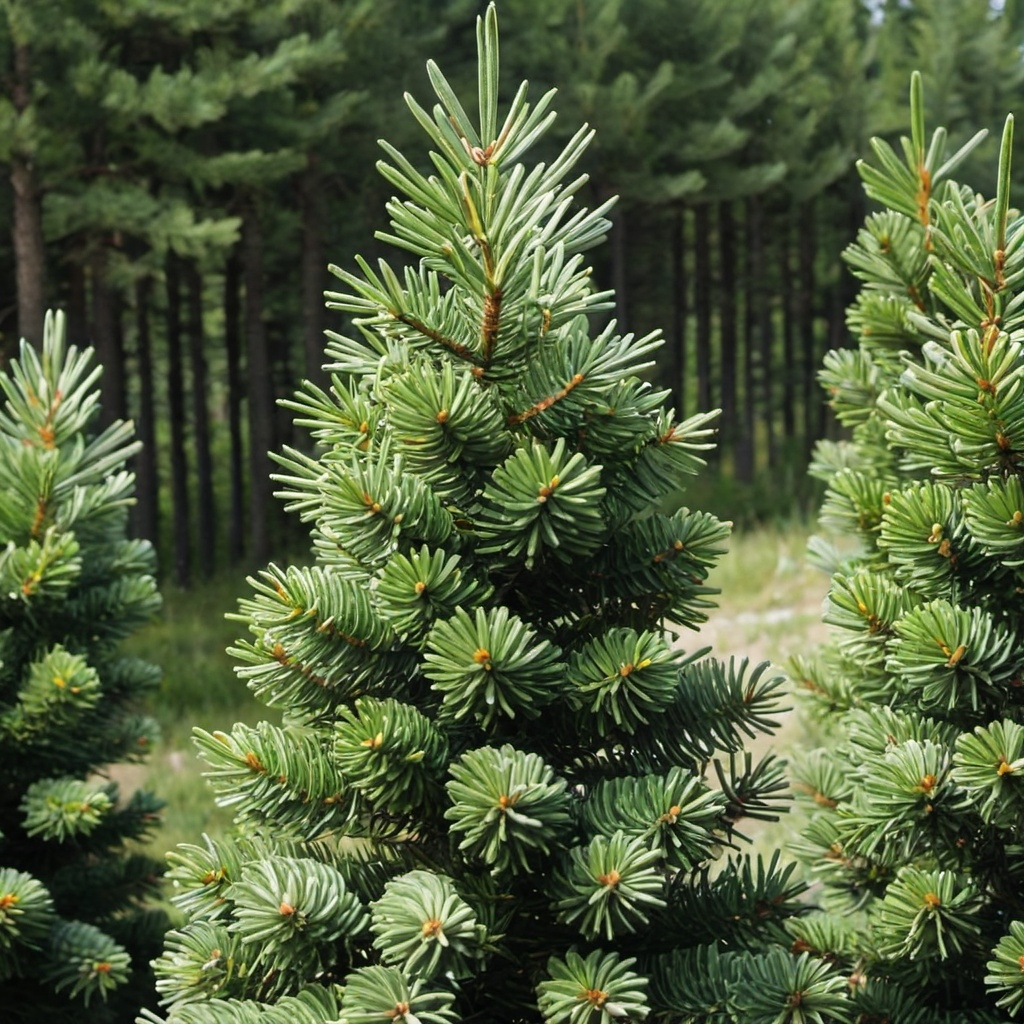Engelmann Spruce Tree Seeds
Engelmann Spruce Tree Seeds
Couldn't load pickup availability
Engelmann Spruce Tree Seeds
(Picea engelmanni)
The Engelmann Spruce tree (Picea engelmannii) is a species of spruce native to western North America, named after the botanist George Engelmann.
Characteristics
- Height and Growth: Engelmann spruce can grow up to 100-130 feet tall, with some exceptional specimens reaching 150 feet. It has a narrow, conical shape with a straight trunk.
- Needles: The needles are bluish-green, about 1 inch long, and have a sharp point. They are arranged spirally around the branches.
- Bark: The bark is thin, scaly, and grayish-brown when young, becoming more deeply furrowed with age.
- Cones: The cones are slender, cylindrical, and about 2-4 inches long. They start out purple or green and mature to a light brown color.
- Root System: Engelmann spruce has a shallow root system, which makes it susceptible to windthrow.
Habitat
- Elevation: It is typically found at high elevations, from 3,000 to 11,000 feet, often in subalpine forests.
- Climate: Prefers cold, moist environments. It is well-adapted to harsh conditions, including heavy snow and strong winds.
- Soil: Grows best in well-drained, loamy or sandy soils but can tolerate a variety of soil types as long as there is adequate moisture.
Ecology
- Associates: Often found growing with other conifers such as subalpine fir (Abies lasiocarpa), lodgepole pine (Pinus contorta), and aspen (Populus tremuloides).
- Wildlife: Provides habitat for various wildlife, including birds and small mammals. The seeds are a food source for birds like the pine siskin.
Uses
- Timber: The wood is light, strong, and straight-grained, making it valuable for construction, paper production, and musical instruments.
- Ornamental: Sometimes used as an ornamental tree in landscapes due to its attractive shape and color.
- Conservation: Plays a significant role in watershed protection and soil stabilization in its native range.
Planting and Care
- Seed Germination: Seeds require stratification (a period of cold, moist conditions) to germinate. Typically, this involves storing seeds in a refrigerator for 30-60 days before planting.
- Planting: Plant in a location with full sun to partial shade and well-drained soil. Ensure adequate spacing to allow for growth.
- Watering: Keep the soil consistently moist, especially during the first few years of growth. Engelmann spruce does not tolerate drought well.
- Pruning: Minimal pruning is required. Remove dead or damaged branches as needed to maintain the tree's health and shape.
Zones: 3 to 6
Stratification Requirement: Seed requires 21-42 days cold stratification.
Planting Instructions:
Soil Preparation: Prepare a well-draining seed-starting mix. A mix of peat moss, perlite, and vermiculite or seed starting mix works well. Fill seed trays or pots with the mix.
Sowing Seeds: Sow the stratified seeds on the soil surface. Lightly press them into the soil but do not cover them completely, as they need light to germinate.
Watering: Mist the soil surface with water to keep it evenly moist but not waterlogged. Use a spray bottle to avoid displacing the seeds.
Light and Temperature: Place the seed trays or pots in a location with bright, indirect light. A temperature range of 65-75°F (18-24°C) is ideal for germination.
Post-Germination Care
Germination Time: Seeds typically germinate in 2-4 weeks. Keep the soil consistently moist during this period.
Transplanting Seedlings: Once the seedlings have developed a few sets of true needles and are large enough to handle, transplant them into individual pots or a nursery bed with well-draining soil.
Hardening Off: Gradually acclimate the seedlings to outdoor conditions over a period of 1-2 weeks. Start by placing them in a shaded area and gradually increase their exposure to sunlight.
Planting Outdoors: When the seedlings are large enough (about 6-12 inches tall) and the danger of frost has passed, plant them in their permanent location. Choose a site with full sun to partial shade and well-drained, slightly acidic soil.
Watering and Mulching: Water the seedlings regularly during the first growing season to establish a strong root system. Mulch around the base to retain moisture and suppress weeds.
Maintenance
Watering: Once established, Engelmann spruce trees are relatively drought-tolerant but will benefit from occasional deep watering during dry periods.
Pruning: Minimal pruning is required. Remove any dead or damaged branches as needed.
Protection: Protect young trees from pests and wildlife, such as deer and rodents, which may browse on the tender foliage.
Share


